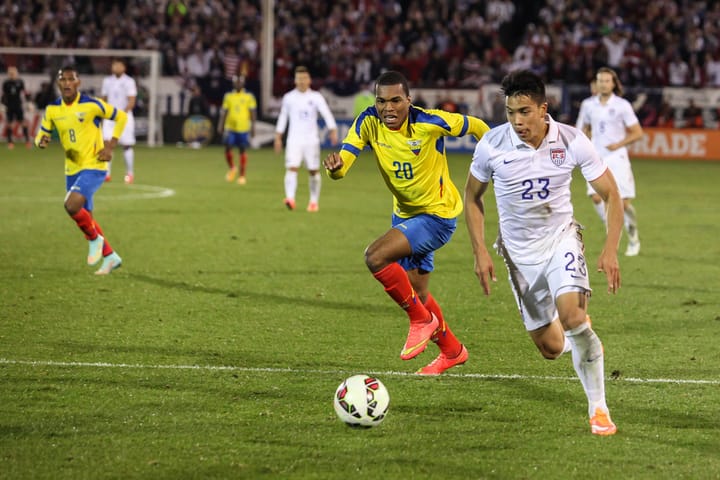Bridging the Atlantic: A Comparative Analysis of MLS and European Soccer Teams
Many people underestimate the strength of Major League Soccer, the most important soccer league in North America. In this article, we show proof that, based on real data, the top teams in the MLS would be able to compete in the most important European leagues.

In the exciting world of soccer, as it is known in North America, comparing the strength and performance of teams across continents has always sparked interest among fans, pundits, and analysts alike. Major League Soccer (MLS), a relatively younger entity in global soccer, has experienced tremendous growth in popularity and quality in recent years, raising intriguing questions about how its best teams stack up against their European counterparts.
While European soccer, steeped in rich history and tradition, boasts clubs renowned for their iconic status, global fan base, and star-studded rosters, MLS teams have been quickly bridging the gap, showcasing remarkable talent and competitiveness. However, do these strides signify a shift in the global soccer hierarchy, or does the old continent still hold its firm grip on footballing dominance?
This article aims to present a comprehensive comparison between MLS teams and well-known European clubs from the Top 5 soccer countries in Europe, considering factors such as squad depth, tactical proficiency, player development, financial strength, and international success. By delving into these aspects, we will take an exploratory journey into the changing landscape of global soccer and assess whether the new world is truly catching up with the old in the beautiful game.
Join us as we embark on a transatlantic soccer analysis, a study where New meets Old, potentially rewriting the narrative of world soccer supremacy.
How to get a comparison between soccer teams from different countries?
As it is impossible to organize a major tournament with all the top teams from Europe and the MLS teams and have them play each other, we decided to use data from Football Manager 2023 to get a list of relative strength per team per country.
Football Manager 2023 is a soccer management simulation video game, and it's part of the long-running "Football Manager" series developed by Sports Interactive and published by Sega. In the game, you take on the role of a soccer team manager. Your responsibilities include everything from tactics and training to transfers and scouting.
As a manager, you will make decisions on the tactics and strategies your team will use during matches, decide which players to buy or sell during transfer windows, manage the training and development of your players, and even handle press conferences and interactions with the board of directors of your club.
Football Manager is renowned for its depth and realism. The game database contains tens of thousands of players from numerous leagues worldwide, all of whom have detailed attributes and stats that reflect their real-life abilities and potential. The simulation even includes elements such as player injuries, morale, team chemistry, and tactical cohesion, making it feel like you're managing a real soccer team.
Why use Football Manager 2023 to compare the relative strengths of soccer teams?
Football Manager 2023 is designed to provide an incredibly realistic simulation of soccer, with teams and players closely modeled after their real-world counterparts. This makes it a useful tool for comparing the strengths of different teams. Here's why:
Comprehensive Player Database: The game contains a vast database of players, each with a set of attributes that reflect their real-life skills and abilities. By comparing these attributes, you can get a good idea of the relative strengths of different teams.
Detailed Tactical Simulation: The game includes a complex tactical simulation engine that can replicate the effectiveness of various strategies and styles of play. By seeing how different teams perform with different tactics in the game, you can get a sense of how they might fare against each other in real life.
Up-to-date Data: The Football Manager series releases new versions annually, with updated player and team data. This means that the game can reflect recent changes in team composition and player performance.
In-depth Management Factors: Beyond player attributes and tactics, Football Manager also takes into account factors like player morale, team cohesion, and manager tactics. These can significantly influence a team's performance and give you a more nuanced understanding of their strength.
Predictive Analysis: By simulating games or entire seasons, you can use Football Manager to predict outcomes based on the current state of teams. While it won't always be 100% accurate due to the unpredictable nature of sport, it can provide a data-driven estimate of what might happen.
However, it's essential to remember that while Football Manager can provide a detailed and sophisticated simulation, it is still just a simulation. It cannot account for every real-world variable, and its predictions should not be taken as definitive. Real-world outcomes will always be influenced by factors that can't be perfectly replicated in a game. But for a data-informed perspective, it's a great tool.
How does Football Manager 2023 Team Strength Assessments work?
Football Manager 2023, like its predecessors, uses a complex system to simulate and assess the strength of each team. Here's a basic overview of how it works:
Player Attributes: Each player in the game has a set of numerical attributes that represent their skill in various areas, such as passing, tackling, shooting, and decision making. These ratings typically range from 1-20. Additionally, players have hidden attributes, such as consistency and injury proneness, which also influence their performance.
Player Potential and Current Ability: Each player has a 'Current Ability' and 'Potential Ability' rating. The current ability reflects how good the player is at the moment, while the potential ability reflects how good they could become with the right development.
Team Dynamics: The game also takes into account the relationship between players and their manager, the players' morale, and the overall team cohesion. These factors can affect a team's performance significantly, even if they have high-skilled players.
Tactics: The tactical setup chosen by the manager plays a crucial role in the team's performance. This involves formation, playing style, and individual player instructions. A good tactical match-up can sometimes overcome a gap in team abilities.
Match Engine: The game's match engine uses all these factors, simulates the game, and generates results. It factors in home/away advantages, player conditions, and even luck.
All these variables are integrated into a complex algorithm that simulates matches and seasons, thus providing a realistic and dynamic soccer management experience.
Please note that exact algorithms and weighting factors are proprietary to Sports Interactive, the company that makes Football Manager, and therefore not public knowledge. The company regularly updates and improves the match engine and related algorithms to make the simulation as accurate and engaging as possible.
Strength of teams per League (per June 2023)
To get an overview of how MLS teams fare in strength against their European counterparts we made a compilation of teams per country from strongest to weakest. Each list starts with a Rating Number and shows the 3 top players per team and their transfer budget in the Football Manager game. The last two numbers are an indication of the quality of their Training Complex and their Youth Academy.
We used this website to assess all the strengths per team per league
USA - Major League Soccer
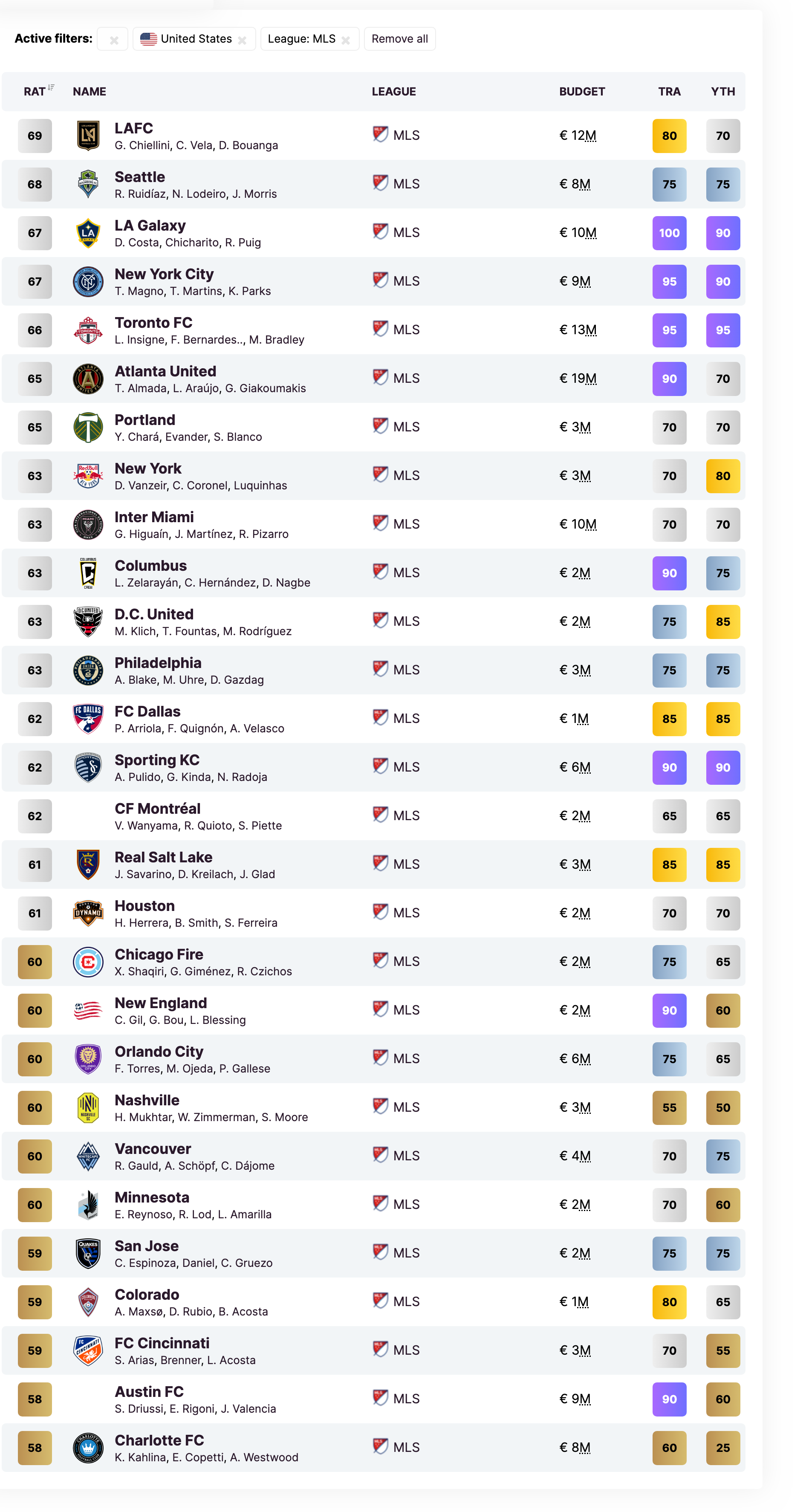
England - Premiership (1st tier)
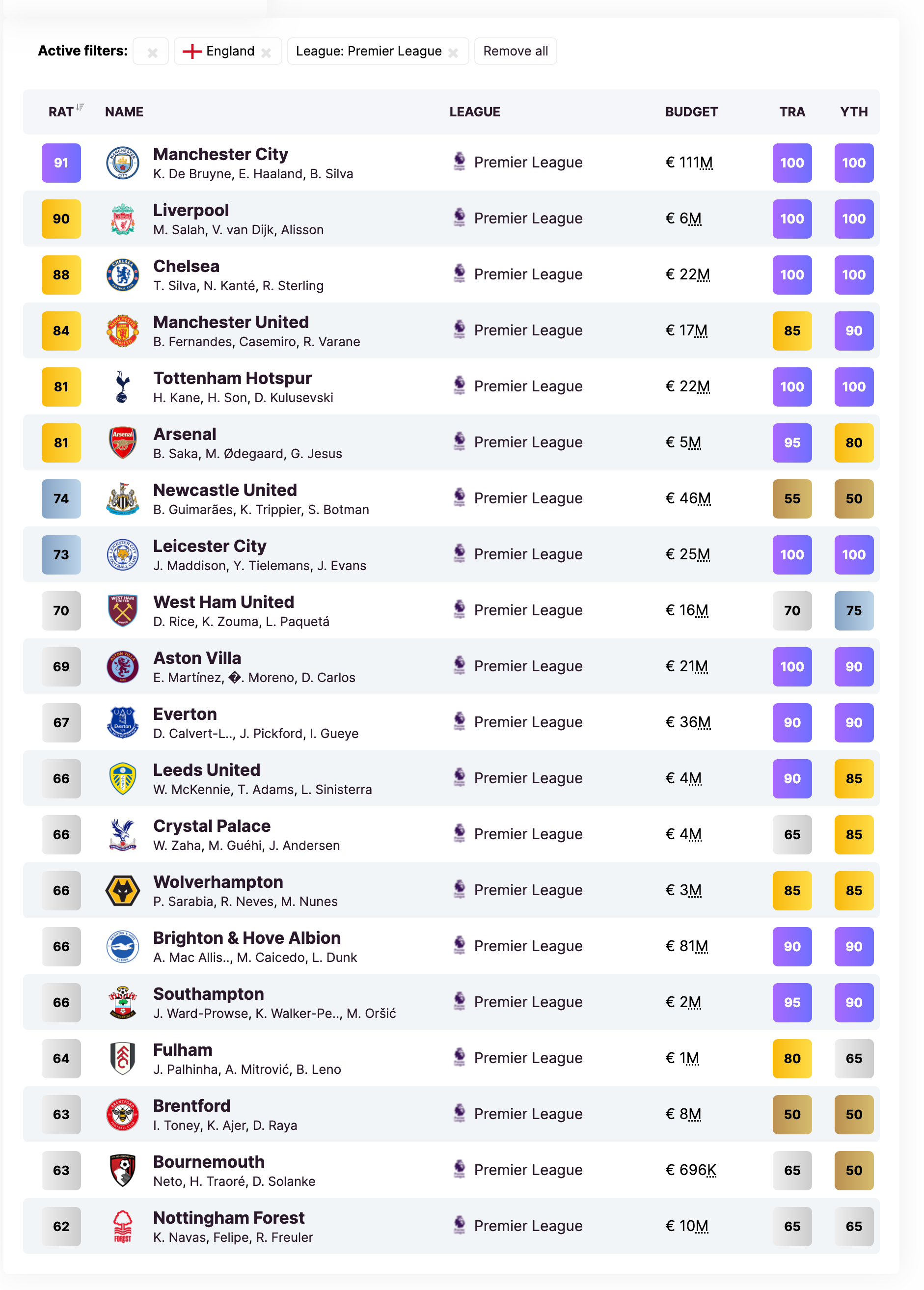
England - Championship (2nd tier)
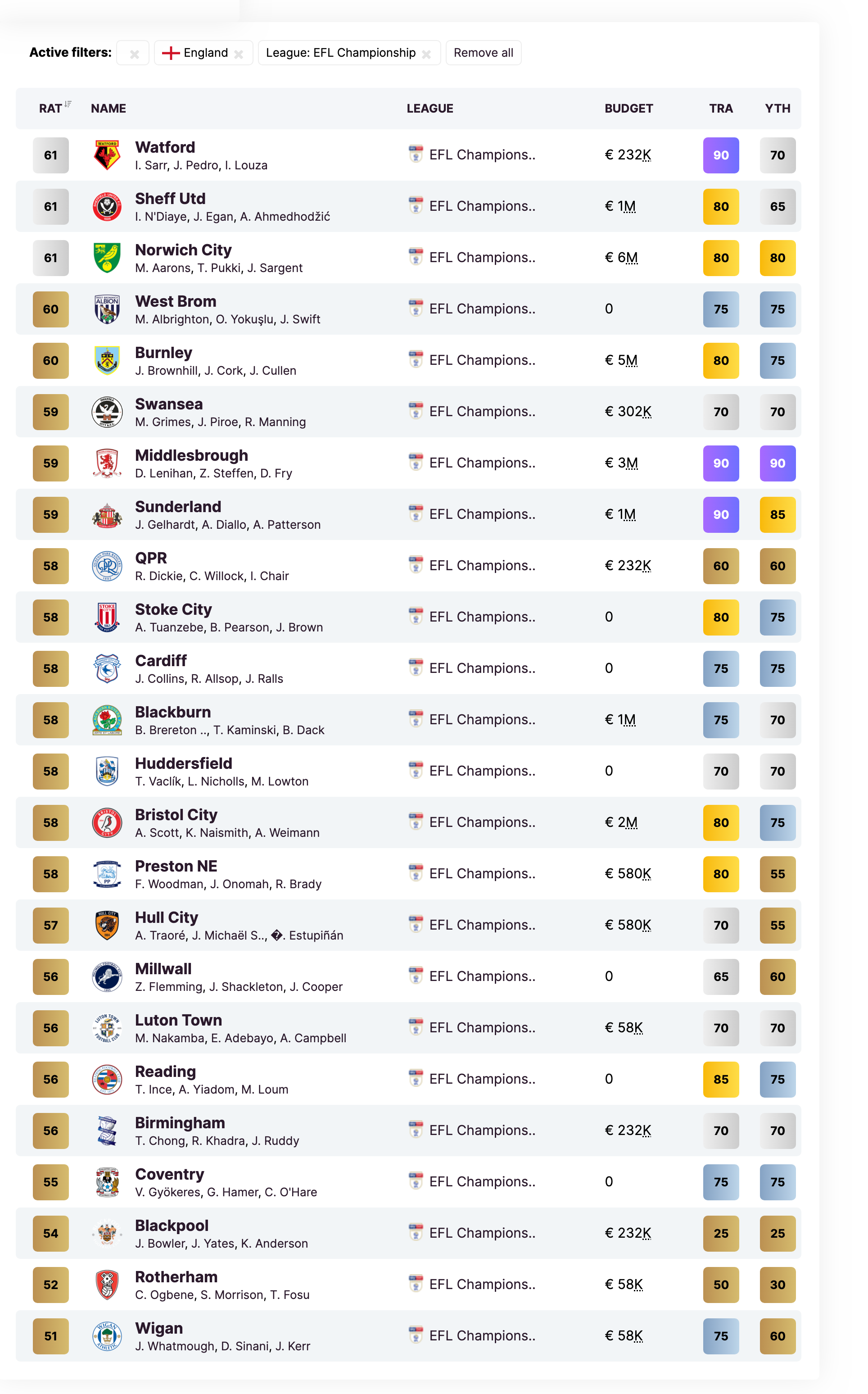
Spain - La Liga 1 (1st tier)
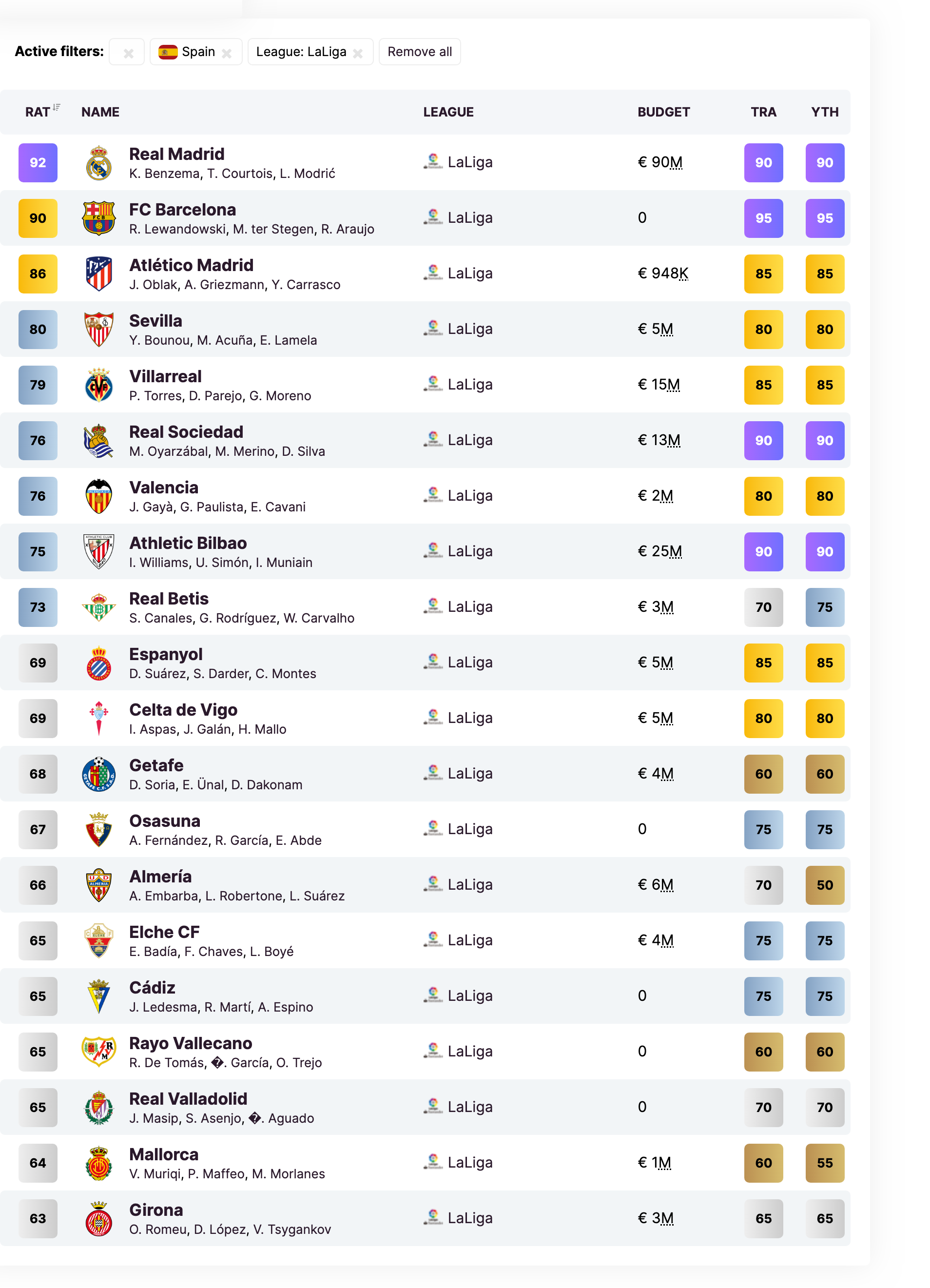
Spain - La Liga 2 (2nd tier)

Germany - Bundesliga (1st tier)
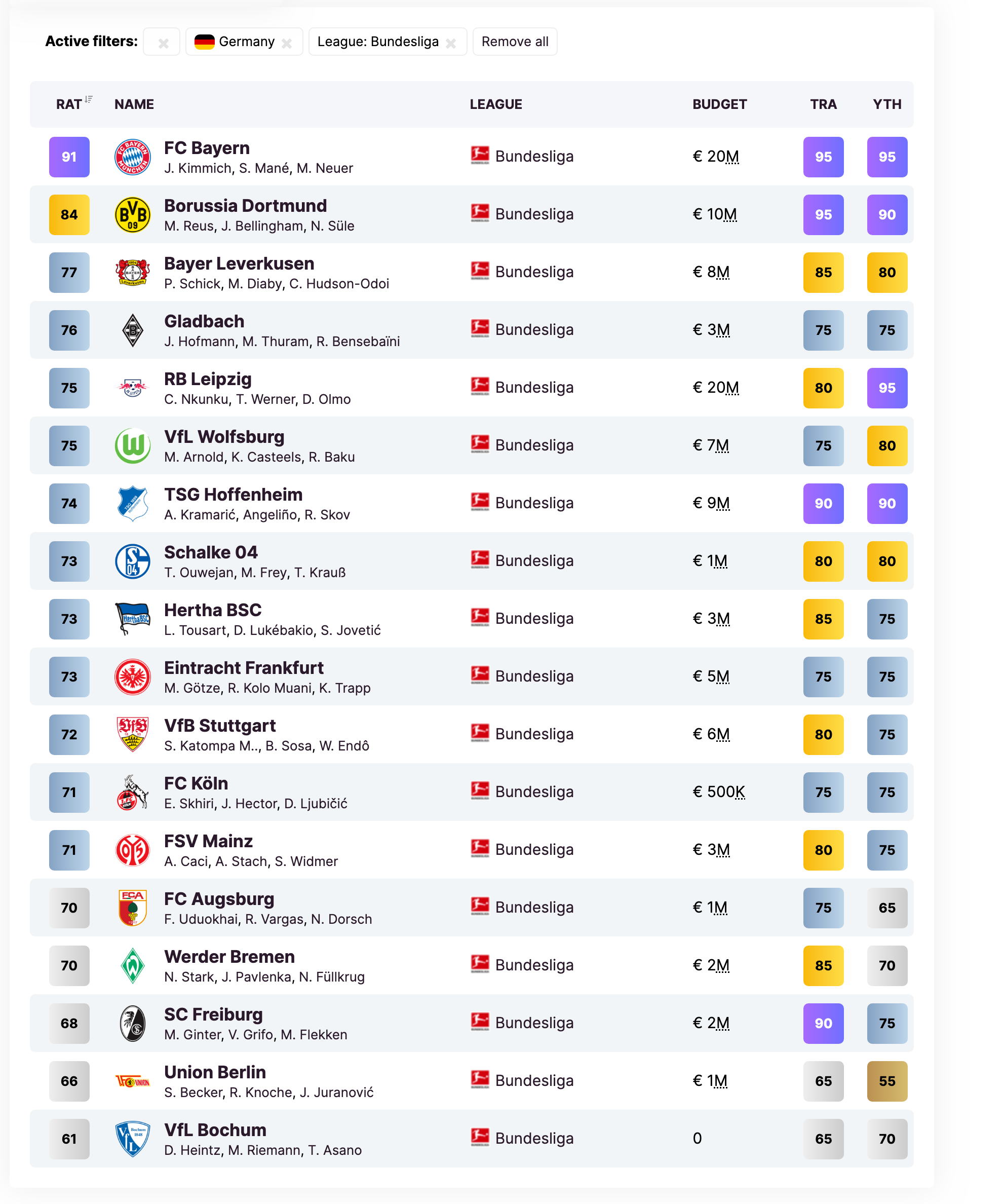
Germany - 2.Bundesliga (2nd tier)
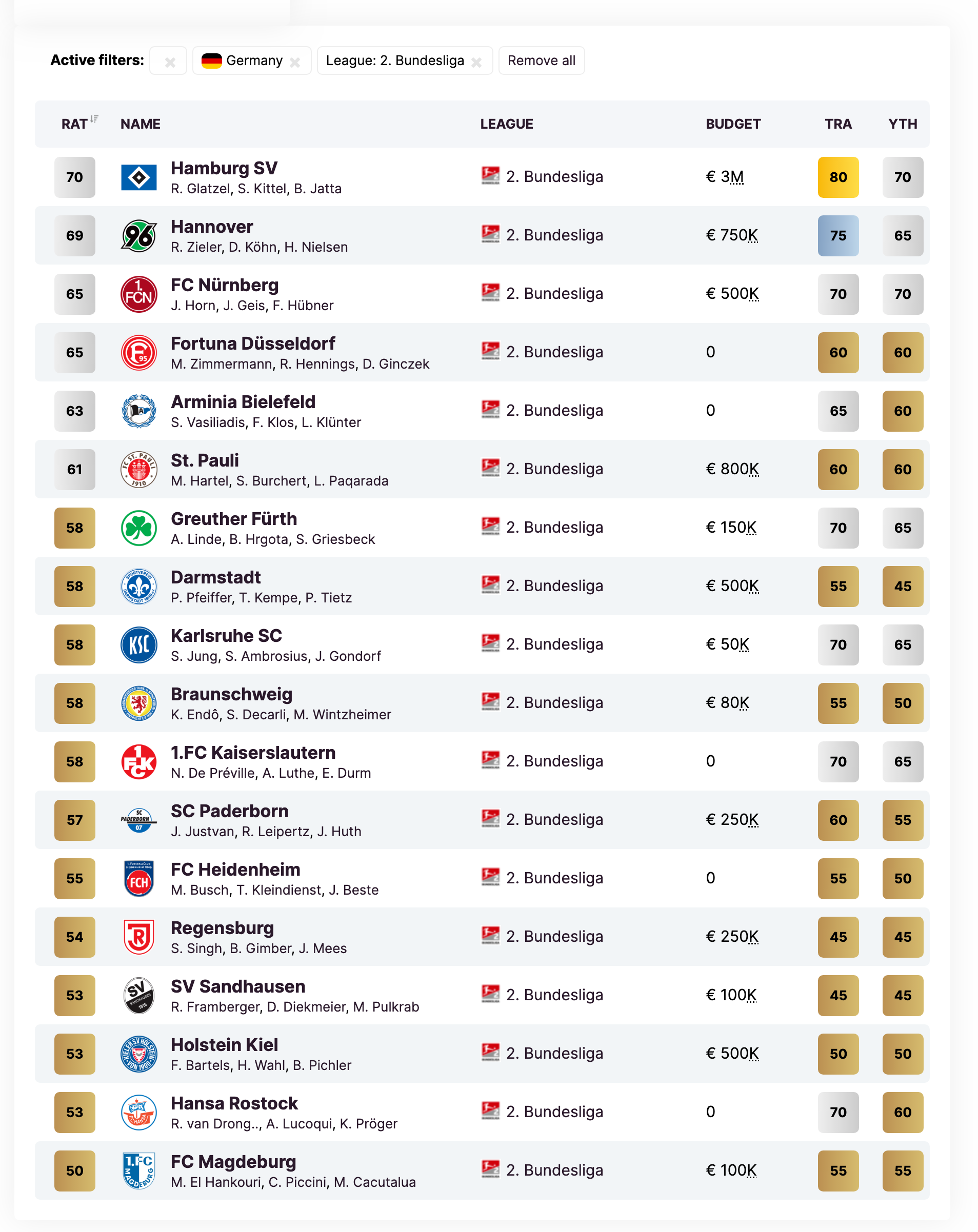
Italy - Serie A (1st tier)
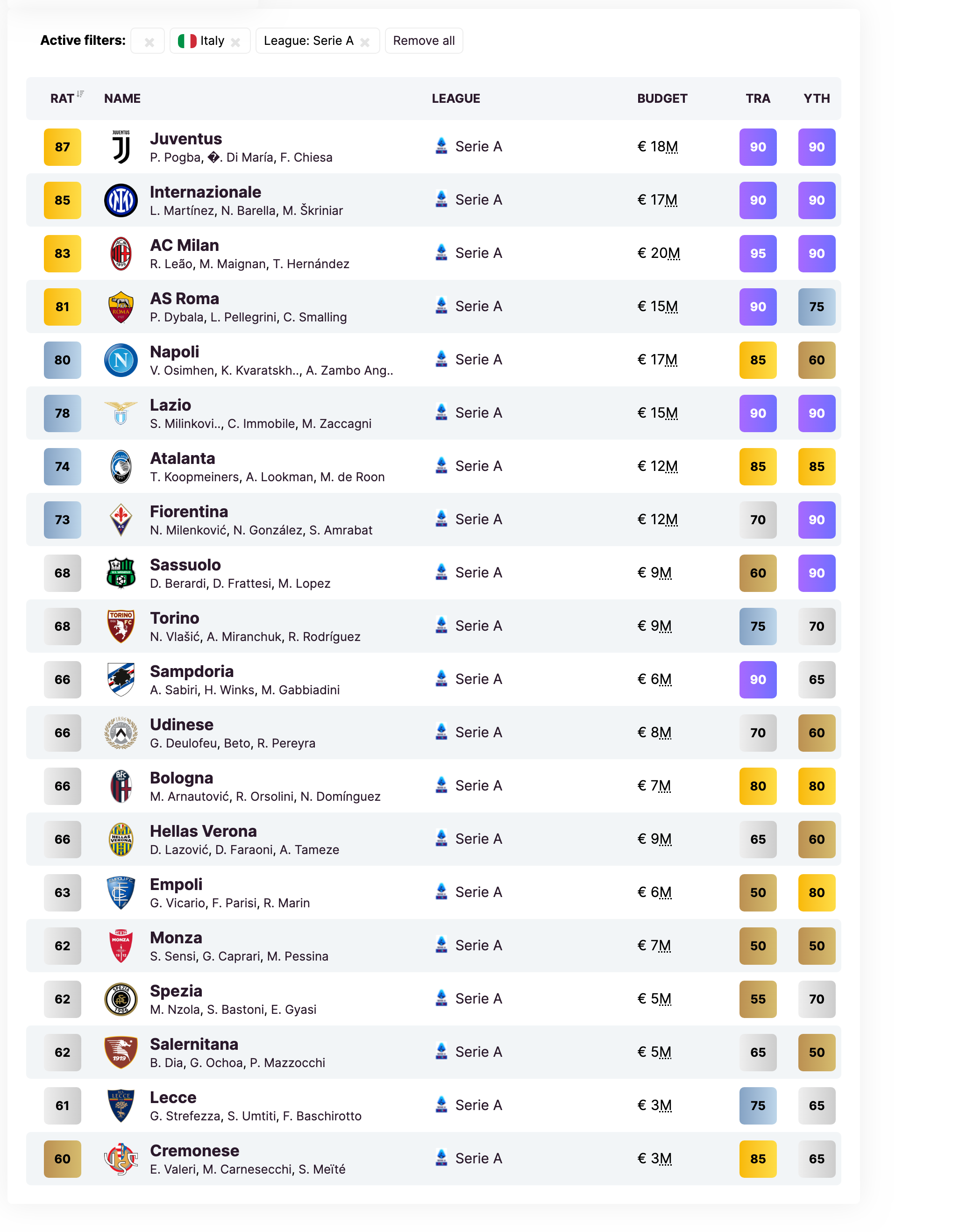
Italy Serie B (2nd tier)
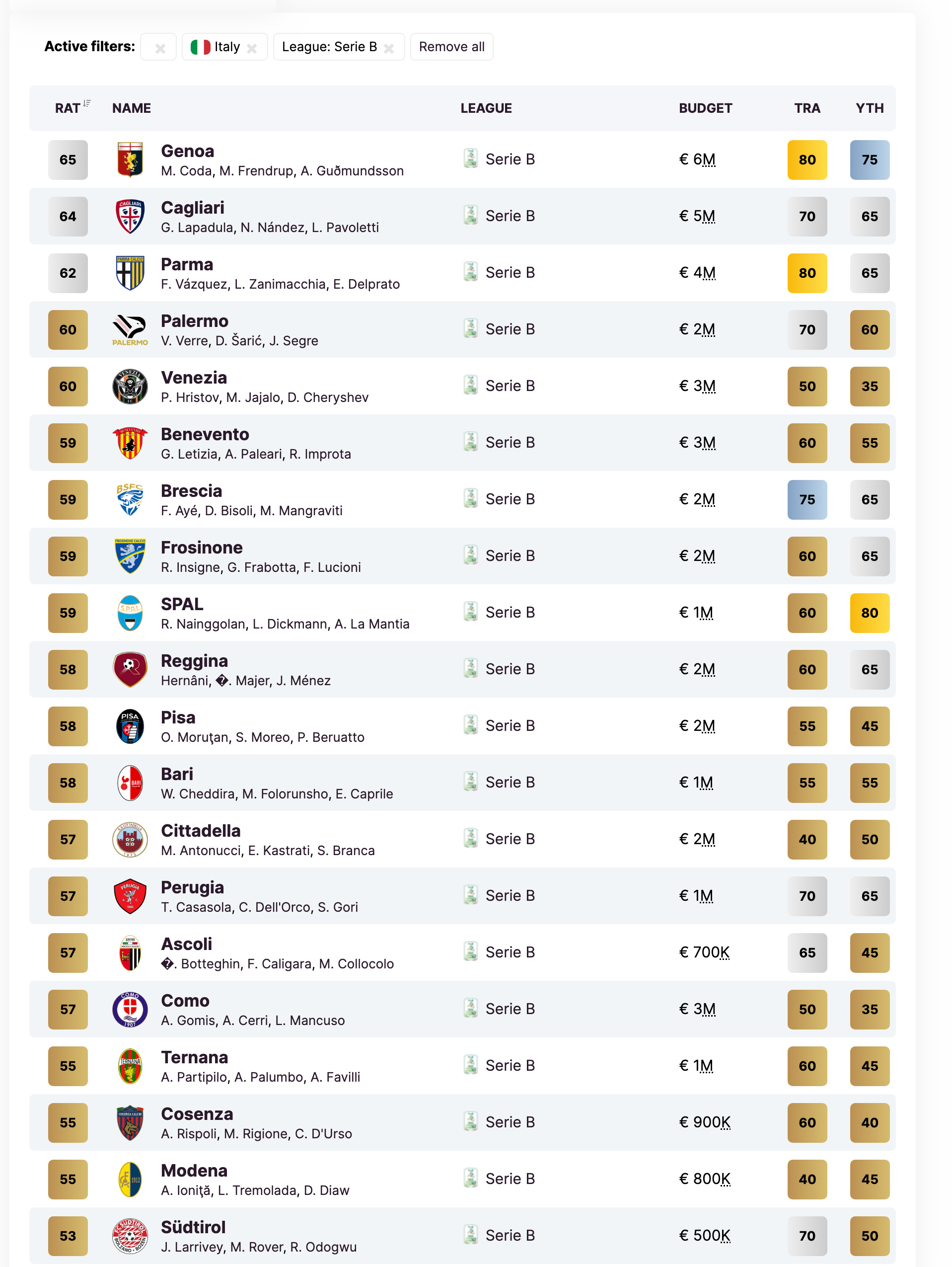
France - Ligue 1 (1st tier)
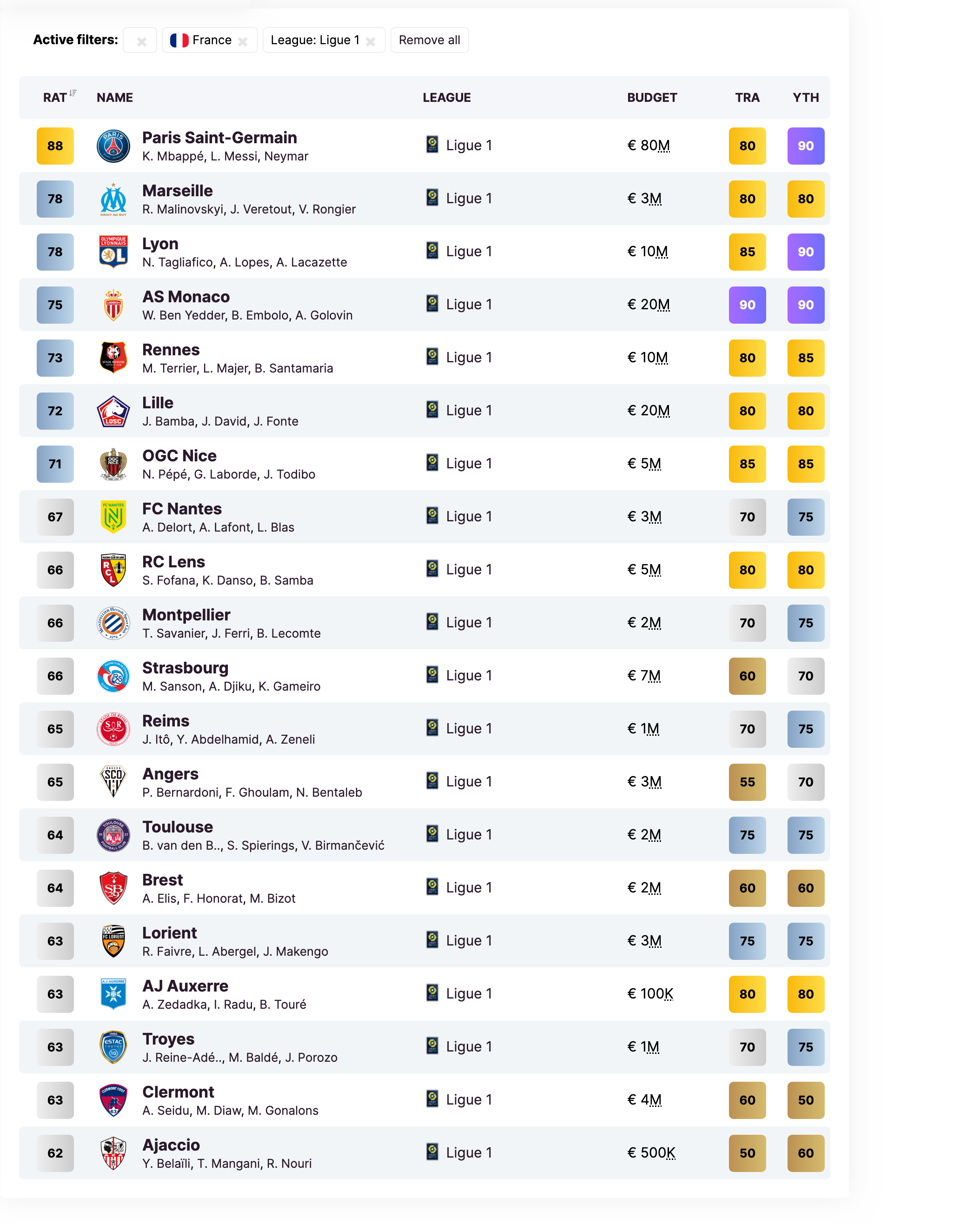
France - Ligue 2 (2nd tier)
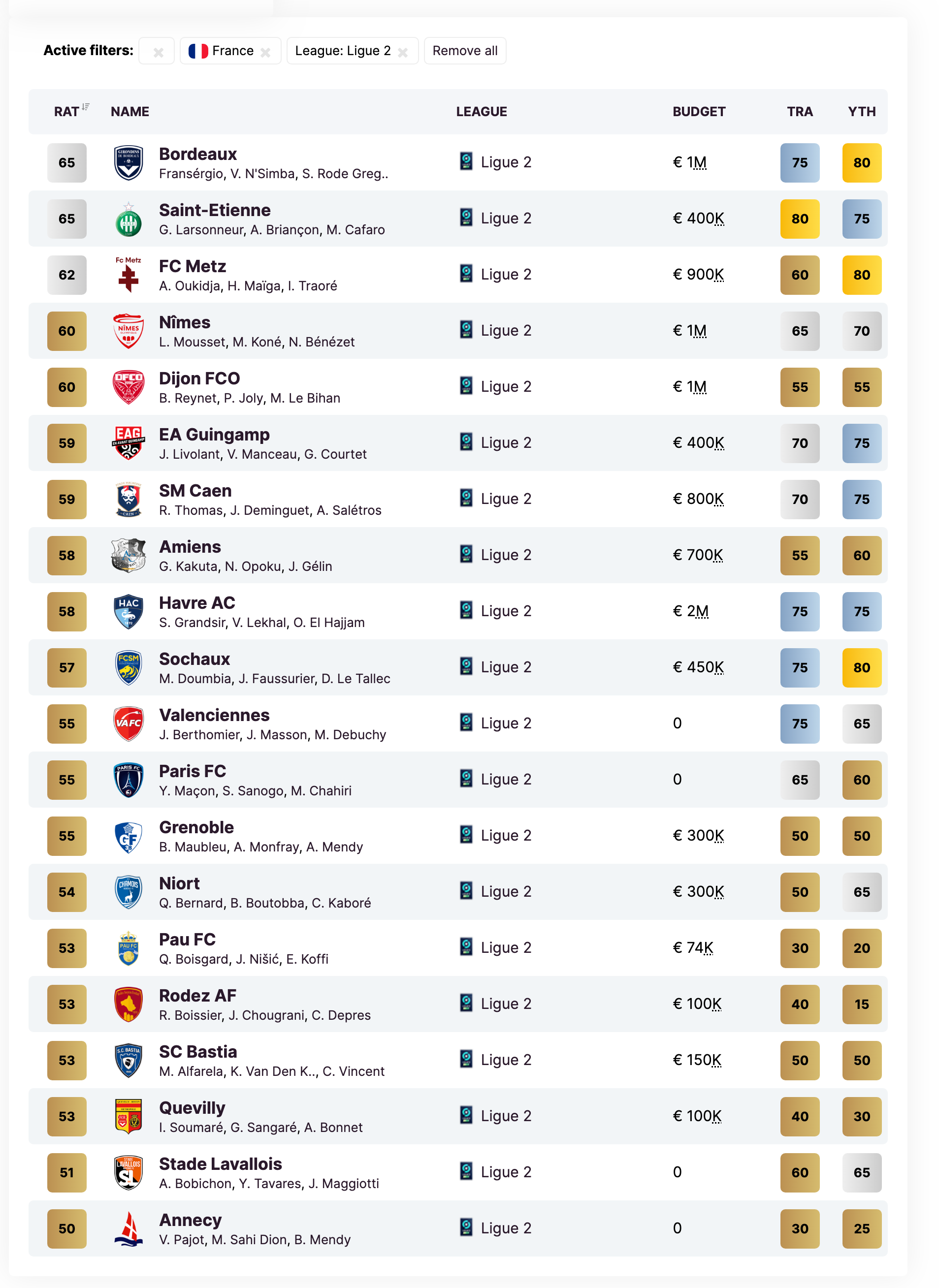
Netherlands - Eredivisie (1st tier)
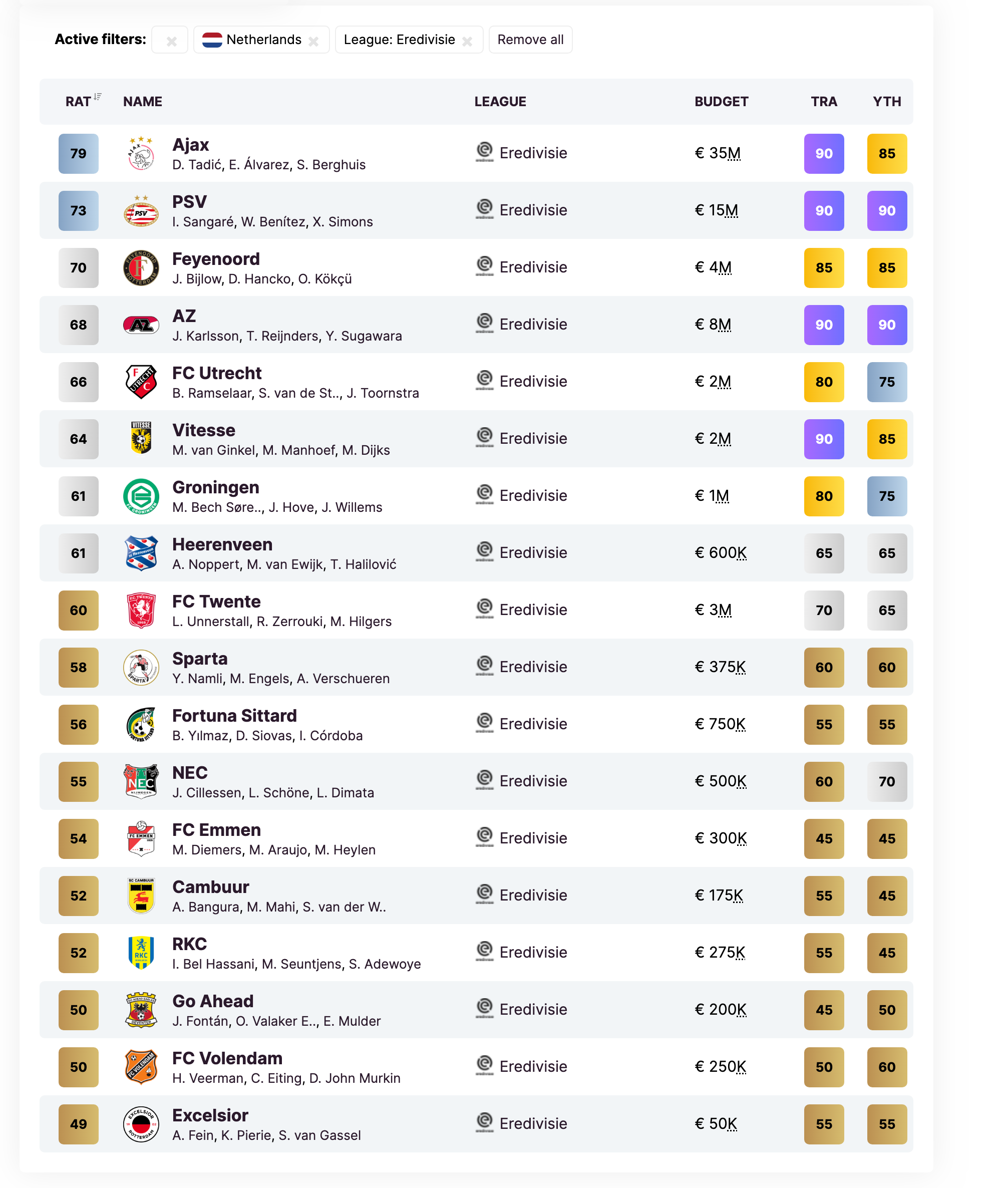
Portugal - Premeira (1st tier)

Conclusion: How do MLS teams compare with top European soccer teams?
In this overview we listed the strengths of all teams from the country specific lists above, sorted from strongest to weakest:
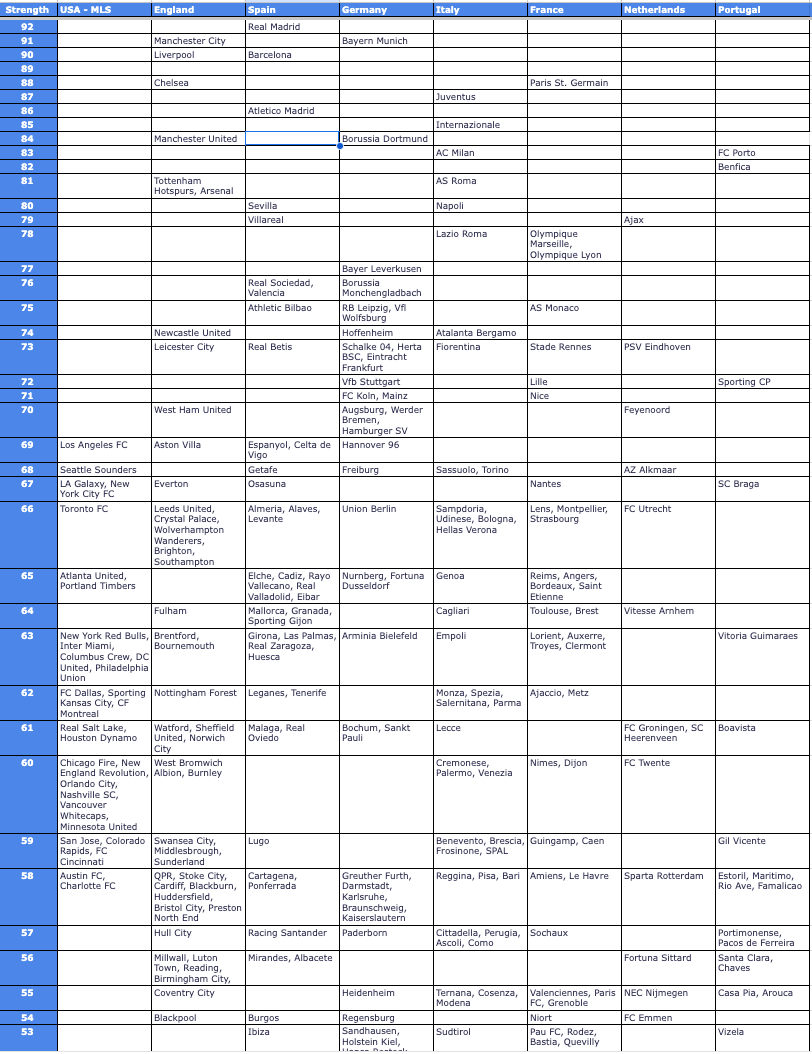
Based on this extensive data set we can confidently conclude that the best MLS teams would be able to compete mid-table in the English Premiership, the German Bundesliga, the Spanish Liga A, the Italian Seria A and would compete for European soccer qualification in France, the Netherlands and Portugal.


